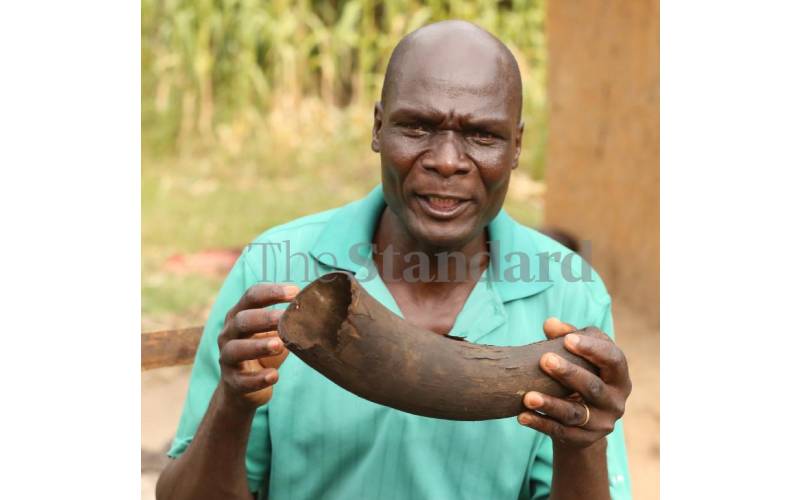×
The Standard e-Paper
Smart Minds Choose Us

Joel Lime is busy cleaning a traditional wild animal horn that his grandfather used as a trumpet many decades ago.
His family living at Emulundu village in Lurambi sub-County has been preserving the horn as a souvenir since their grandfather Samuel Ambale died in 1995. He was 107 years old.